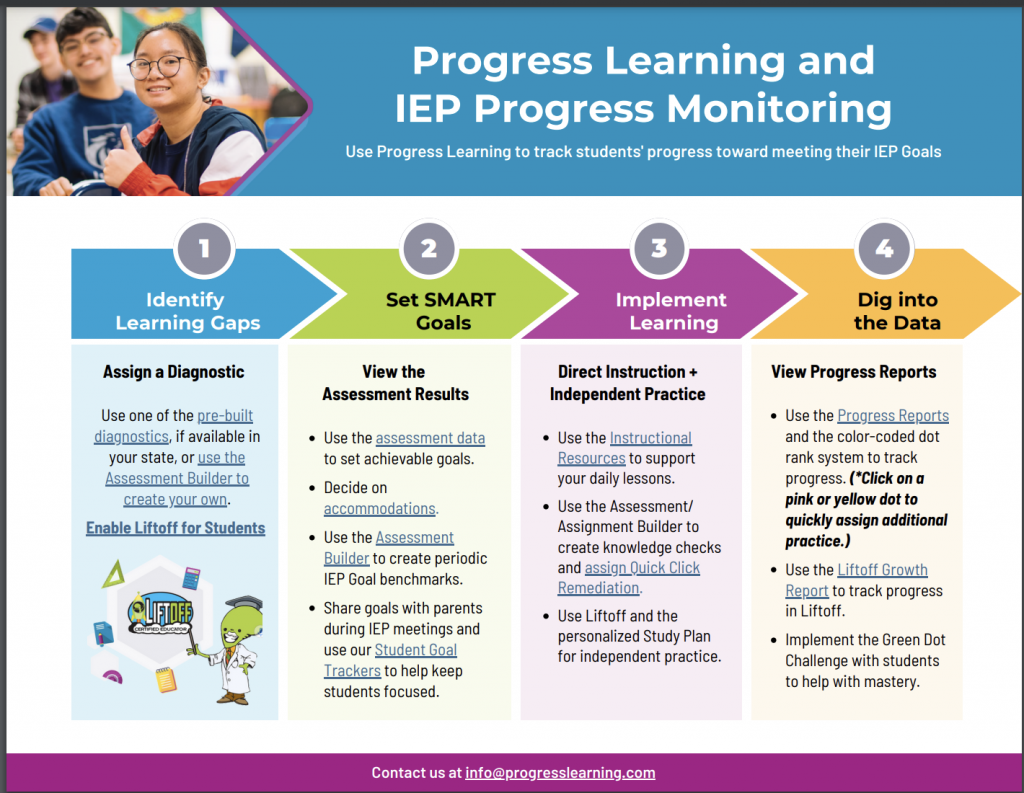Why Progress Monitoring is Critical for Supporting Students with IEPs
Promotes Accountability
When a student is placed on an IEP, educators have a legal obligation to provide support that addresses their unique needs. Progress monitoring enables teachers to track student progress and hold themselves accountable. By regularly collecting and analyzing data, educators can determine if the interventions they are using are working or if they need to adapt and change their approach. Progress monitoring ensures that educators are actively engaged in meeting the needs of their students with IEPs, which promotes greater success and accountability in the classroom.
Helps identify potential issues early on
If a student with an IEP is not making progress at the expected rate, it’s important to identify the issue as soon as possible. Progress monitoring provides regular data to help educators evaluate if the interventions in the IEP plan are helping students make sufficient progress. Identifying issues early on can prevent further academic and social struggles and increase the likelihood of success.
Facilitates Data-based decision-making
By collecting and analyzing student progress data, educators can make informed decisions about what works best for each student when it comes to academic interventions. With concrete data on student progress, teachers can make data-informed decisions and adjust their approach accordingly. They can focus on what interventions to implement and adapt their approach based on the specific needs of each student.
Enables Collaborative conversations
Collaborative conversations between educators and families of students with IEPs are necessary for academic success. Progress monitoring can be a helpful tool for facilitating conversations between families and teachers. By reviewing data on student progress in detail, educators can provide context to families, enabling them to better understand their child’s strengths and areas for growth. Based on these conversations, educators can then make decisions about adaptations that could be made to the student’s IEP.
Promotes a growth mindset
Progress monitoring can foster a growth mindset in students. When students with IEPs see their progress, they gain confidence and are more likely to be motivated in their learning. Focusing on incremental progress can help students find success in small achievements and encourage them to keep working toward larger goals. Celebrating small achievements can foster resilience, perseverance, and a “never give up” attitude that can help drive success.
Importance of quality diagnostics
As educators, we understand the critical role that diagnostics play in identifying learning gaps and addressing the needs of students. With quality diagnostics, we can better understand the strengths and weaknesses of our students, tailor our teaching strategies, and help them reach their full potential. However, not all diagnostics are created equal. The key is to use high-quality assessments and tools that accurately measure students’ knowledge and skills. By doing so, we can provide targeted support and interventions that will close learning gaps for good. It takes time and effort to properly administer and analyze diagnostics, but the dividends we receive in terms of student success make it well worth it.
Progress monitoring is an essential tool that supports students with IEPs. Not only does it enable educators to track student progress, but it can also identify potential issues, facilitate decision-making, promote collaborative conversations between educators and families, and foster a growth mindset. In combination with other teaching practices, progress monitoring can help students with IEPs achieve academic success and thrive in the classroom and beyond.
Progress Learning has quality diagnostics, instructional resources, and reports to help you effectively monitor the progress of your students with IEPs. See how Progress Learning specifically supports IEP progress monitoring here. Ready to further support your students with IEPs? Request a demo of Progress Learning today!



